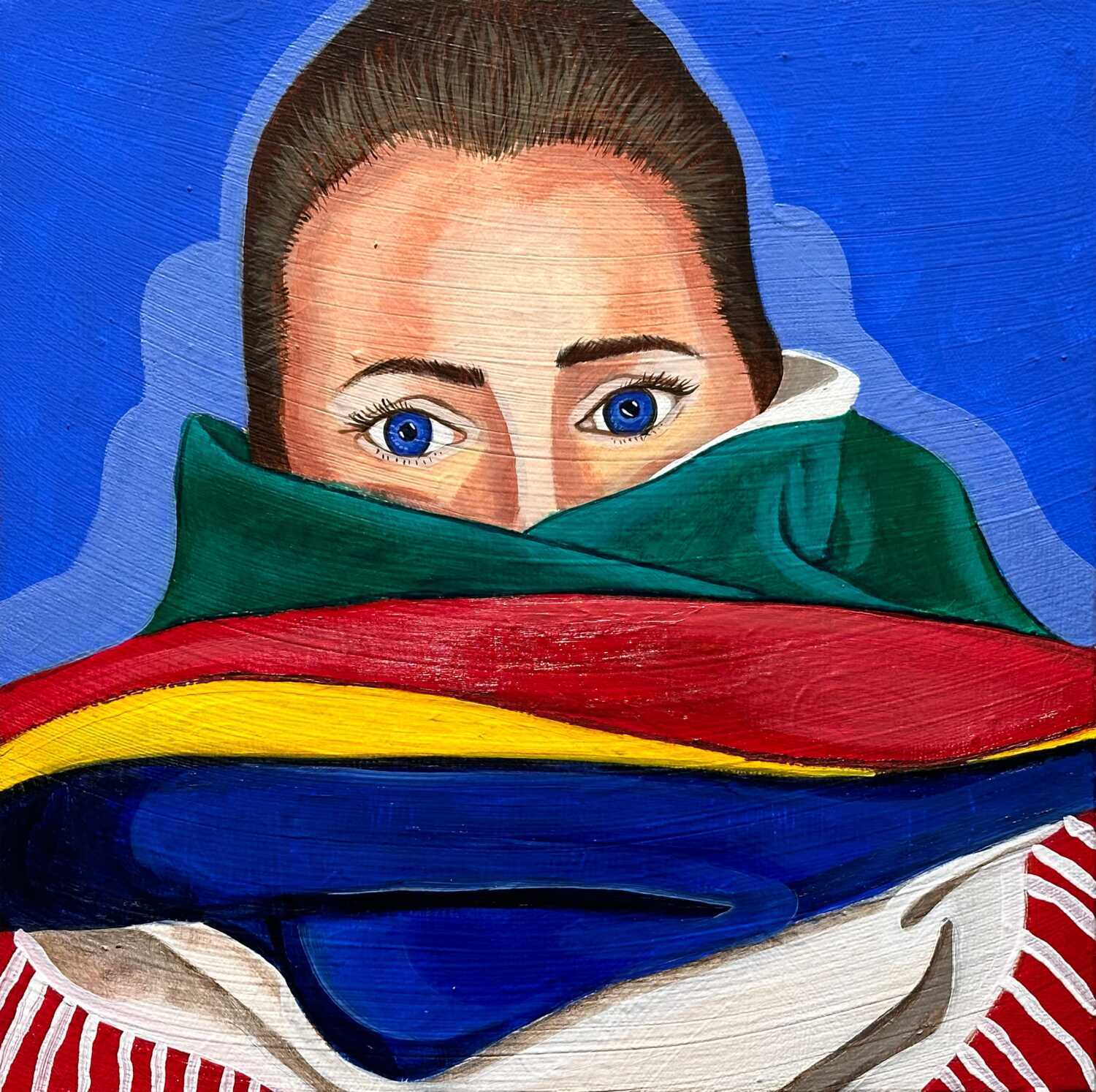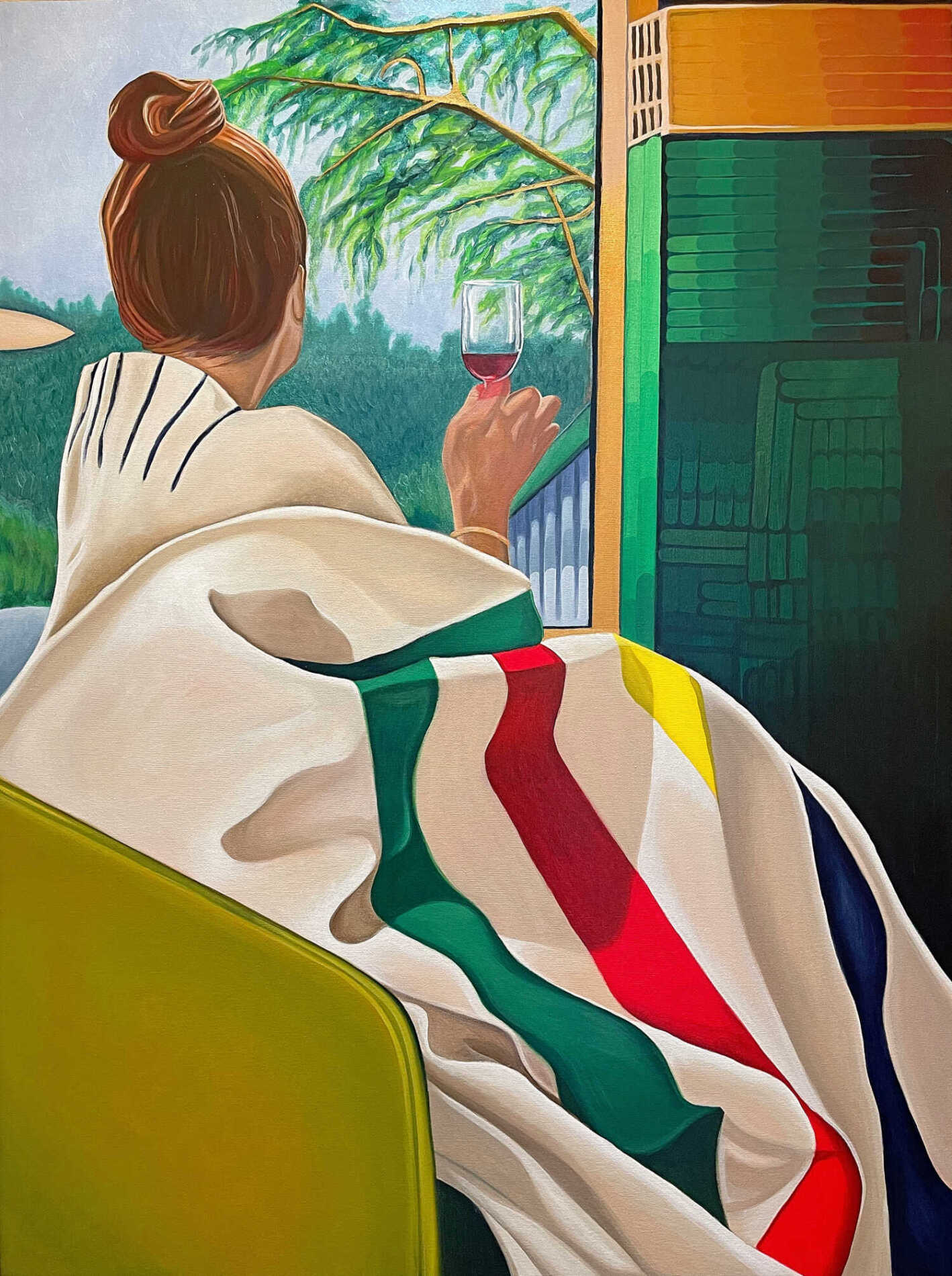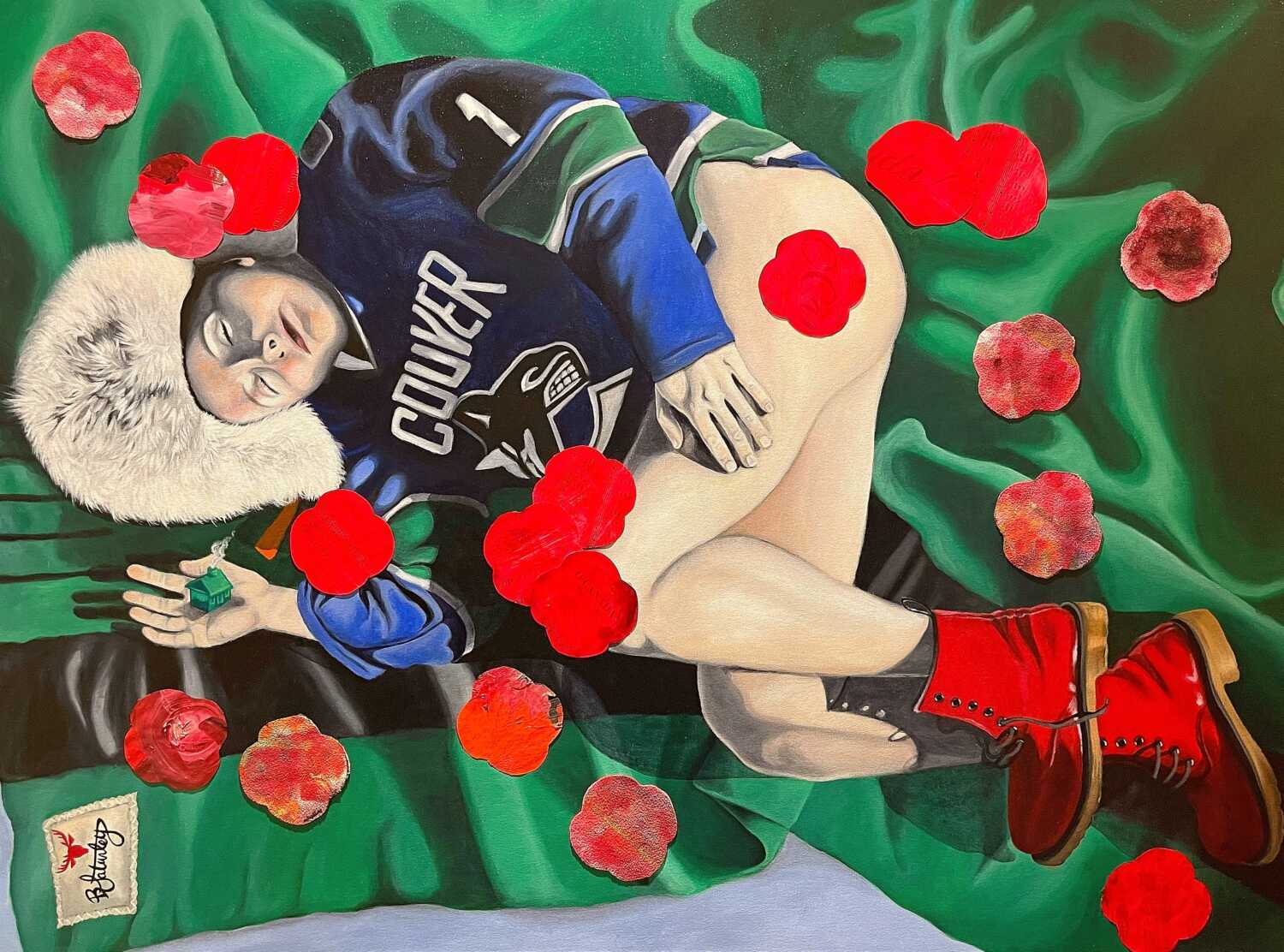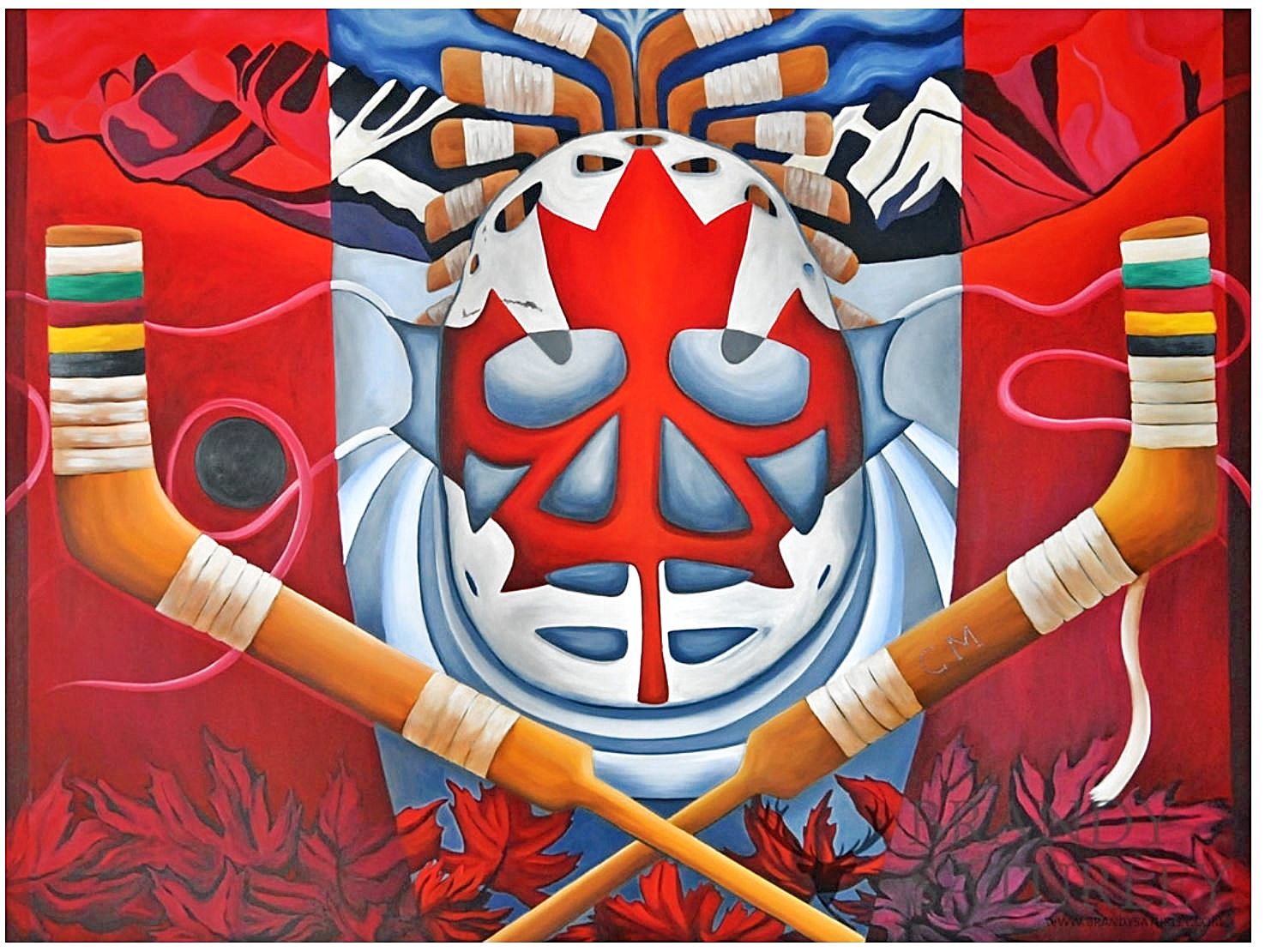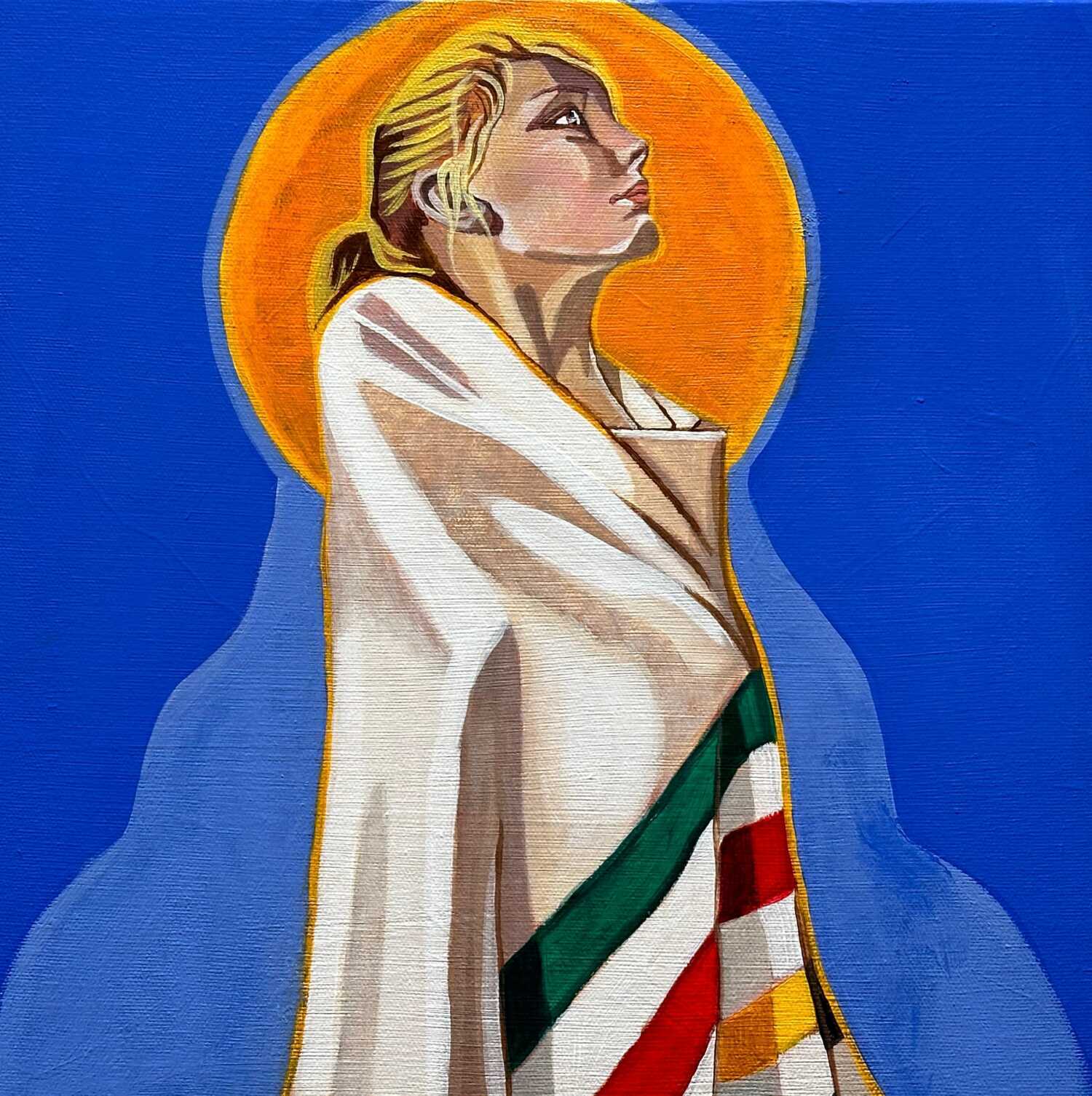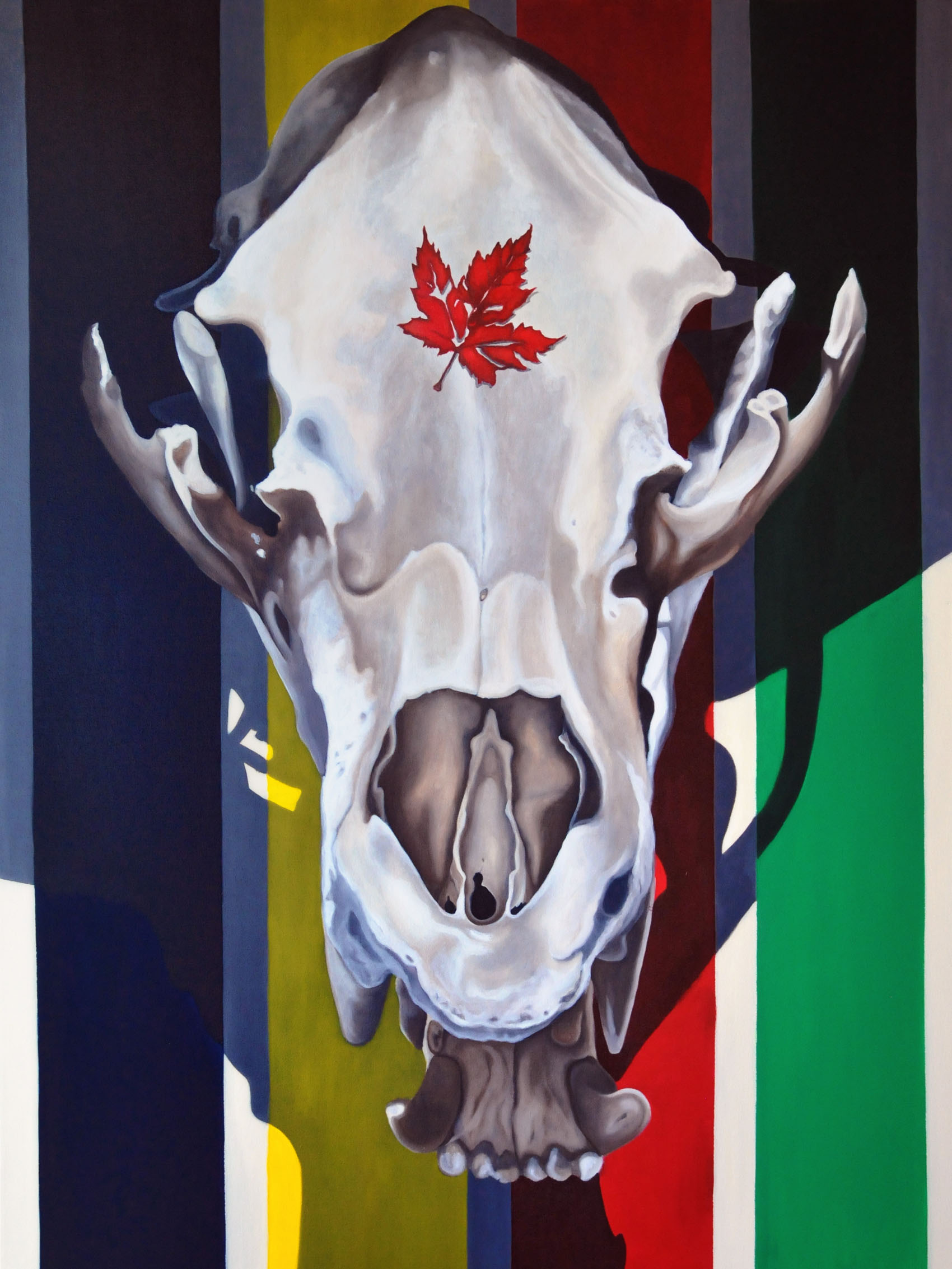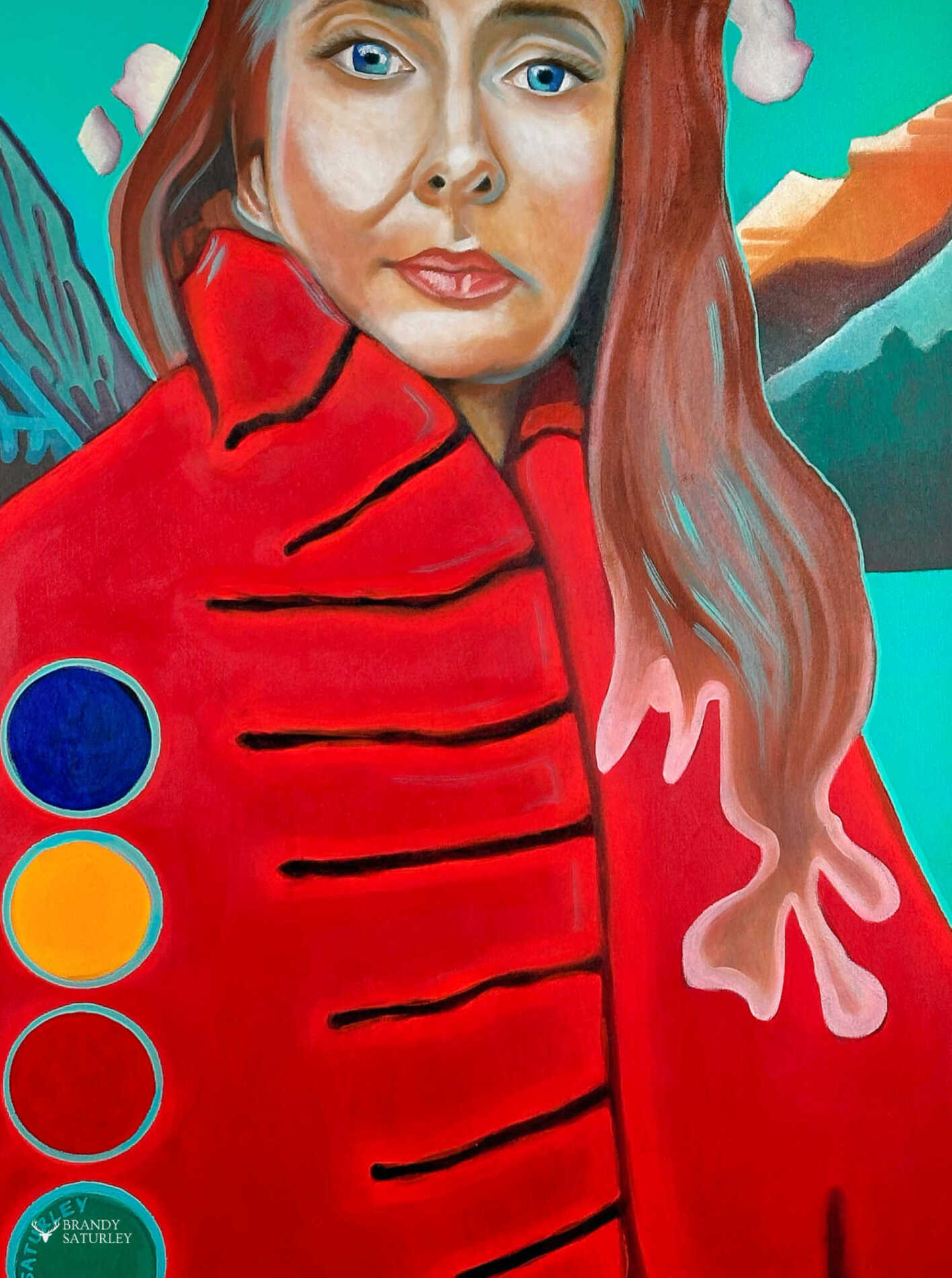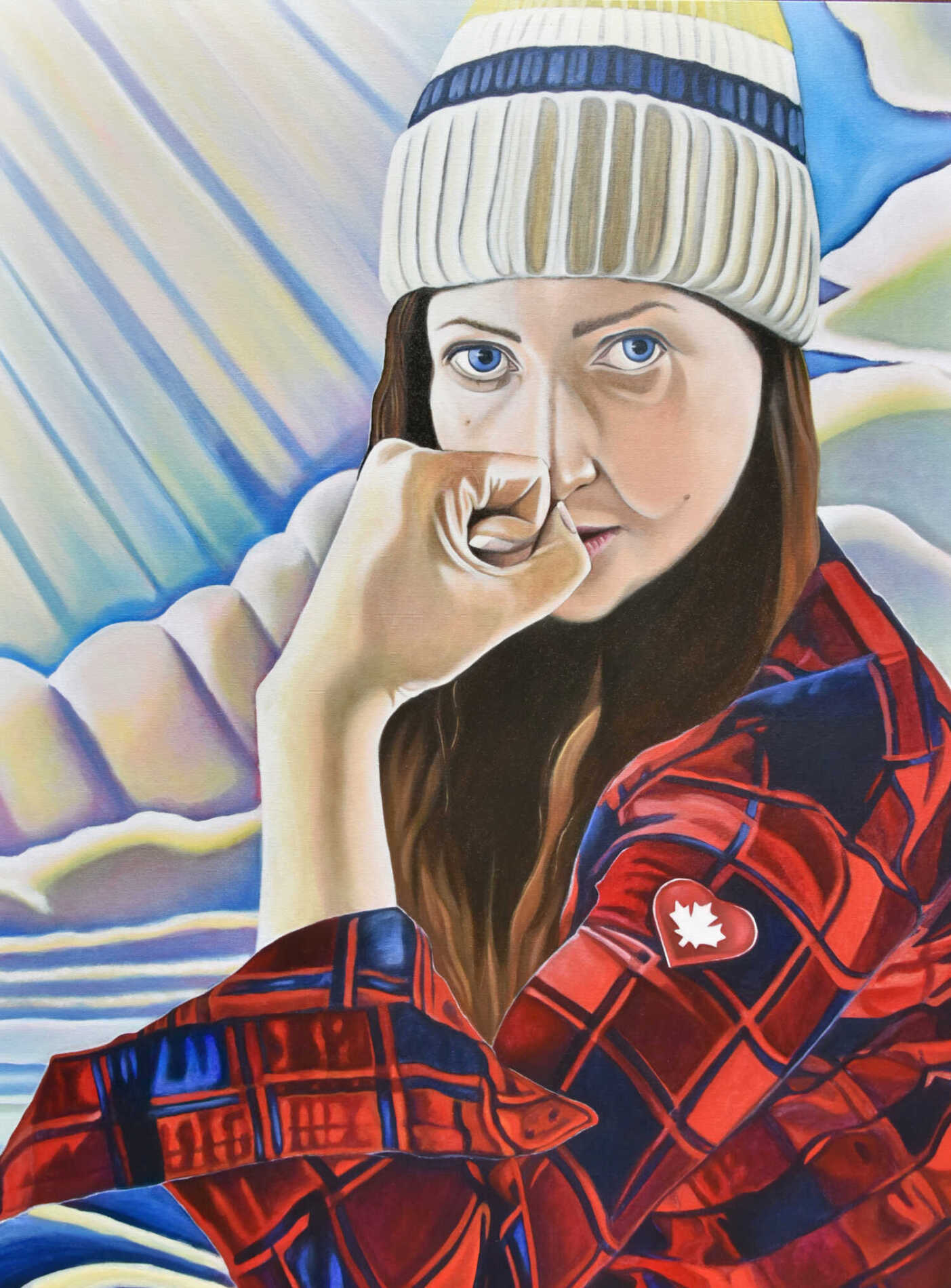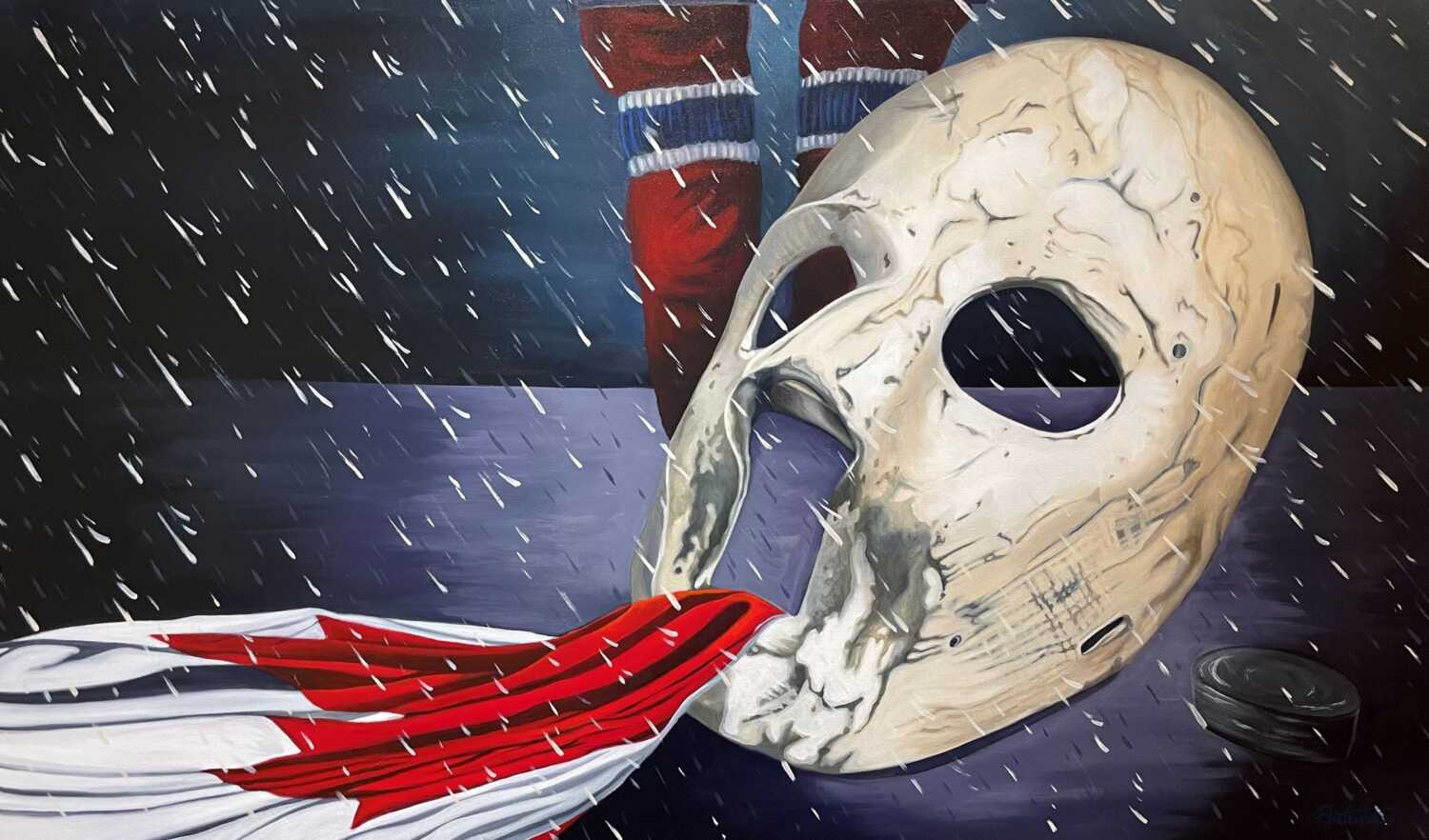Hudson’s Bay Blanket Paintings
Why Are We So Wrapped Up in the Hudson’s Bay Point Blanket? These Paintings Offer a Glimpse
The iconic stripes and colors of the Hudson’s Bay point blanket are woven into the fabric of Canadian history, culture, and memory. For many Canadians, the blanket is more than just an object; it is a symbol of identity and tradition. Growing up in Canada, some of my fondest memories include shopping at Christmas time with my mom at The Bay, marveling at the vibrant displays of merchandise. In the summer, my dad would take me to the soda shop on the top floor, where I savored chocolate malts. Our family owned a couple of Bay blankets, often tucked away in the car for road trips or kept handy in case of emergencies.
These blankets, with their classic green, red, yellow, and indigo stripes, carry a rich legacy that is both nostalgic and complicated. Today, Canadians are much more aware of the cultural significance and origins of the blanket, particularly its connection to the fur trade and its interactions with Indigenous peoples. This understanding adds a new layer of meaning to an object that many of us once considered just a cozy household item.
History of the Hudson’s Bay Point Blanket
The Hudson’s Bay point blanket has a history that stretches back to the late 18th century. First introduced by the Hudson’s Bay Company in 1779, these blankets became a staple of the fur trade, often exchanged for beaver pelts and other goods. The “points,” small woven lines on the edge of the blanket, indicated its size and value, making it a practical item for trade.
These blankets were highly sought after for their warmth, durability, and versatility. They became symbols of colonial commerce but also of complex relationships between settlers and Indigenous communities. While the blankets provided essential warmth, they were also implicated in the darker history of colonization, including their distribution during the fur trade era.
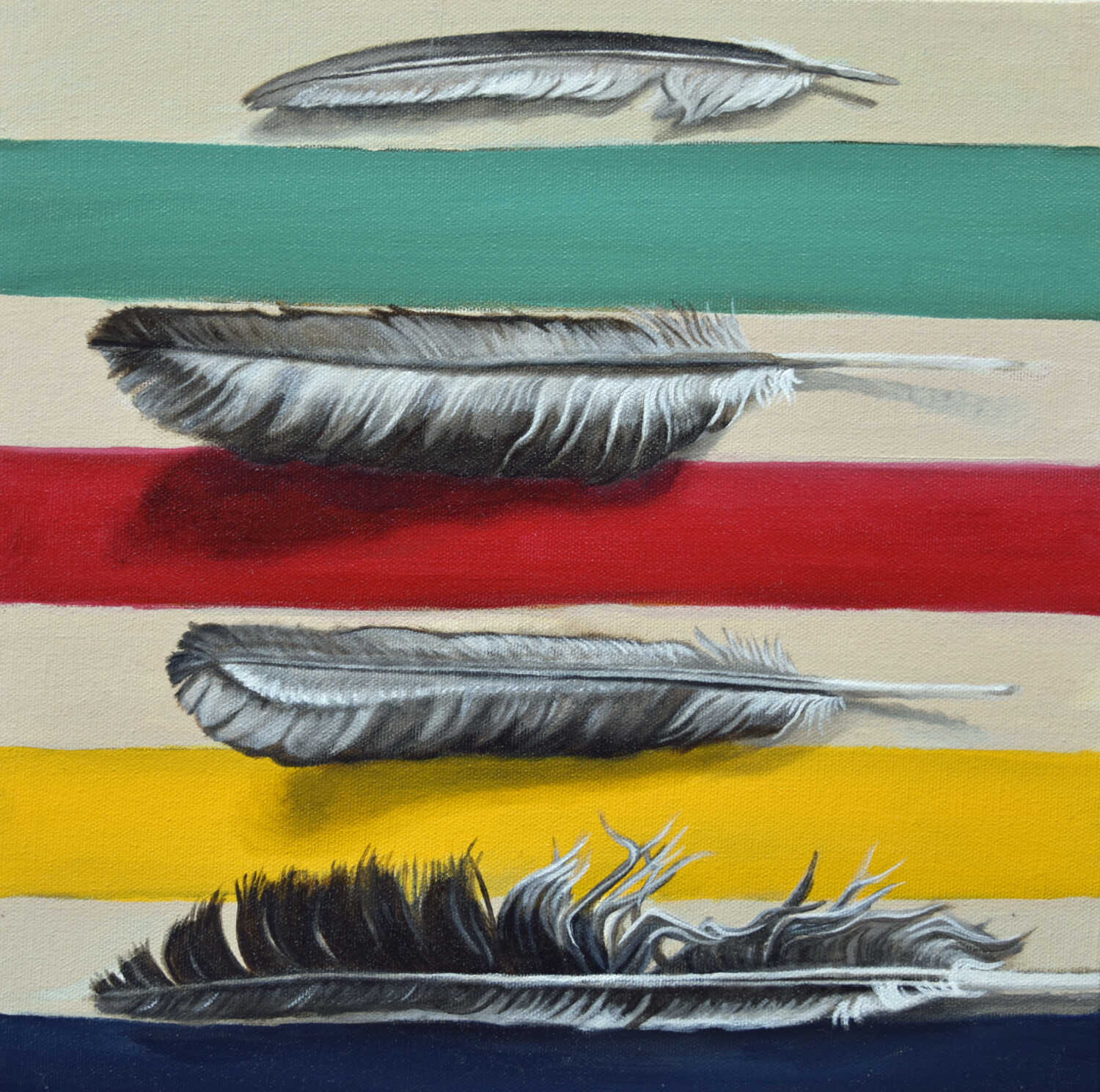
Feathers Over Blanket, 12×12 acrylic on canvas, 2016 – Brandy Saturley
Role of the Blanket in Modern Culture
Today, the Hudson’s Bay point blanket remains an enduring emblem of Canada, appearing in homes, films, and fashion. The iconic stripe design has been reimagined in everything from coats to coffee mugs. However, its history is now viewed through a more critical lens, prompting discussions about cultural appropriation and the legacy of the fur trade. For many, the blanket represents a shared heritage that invites reflection on Canada’s complex past and evolving identity.
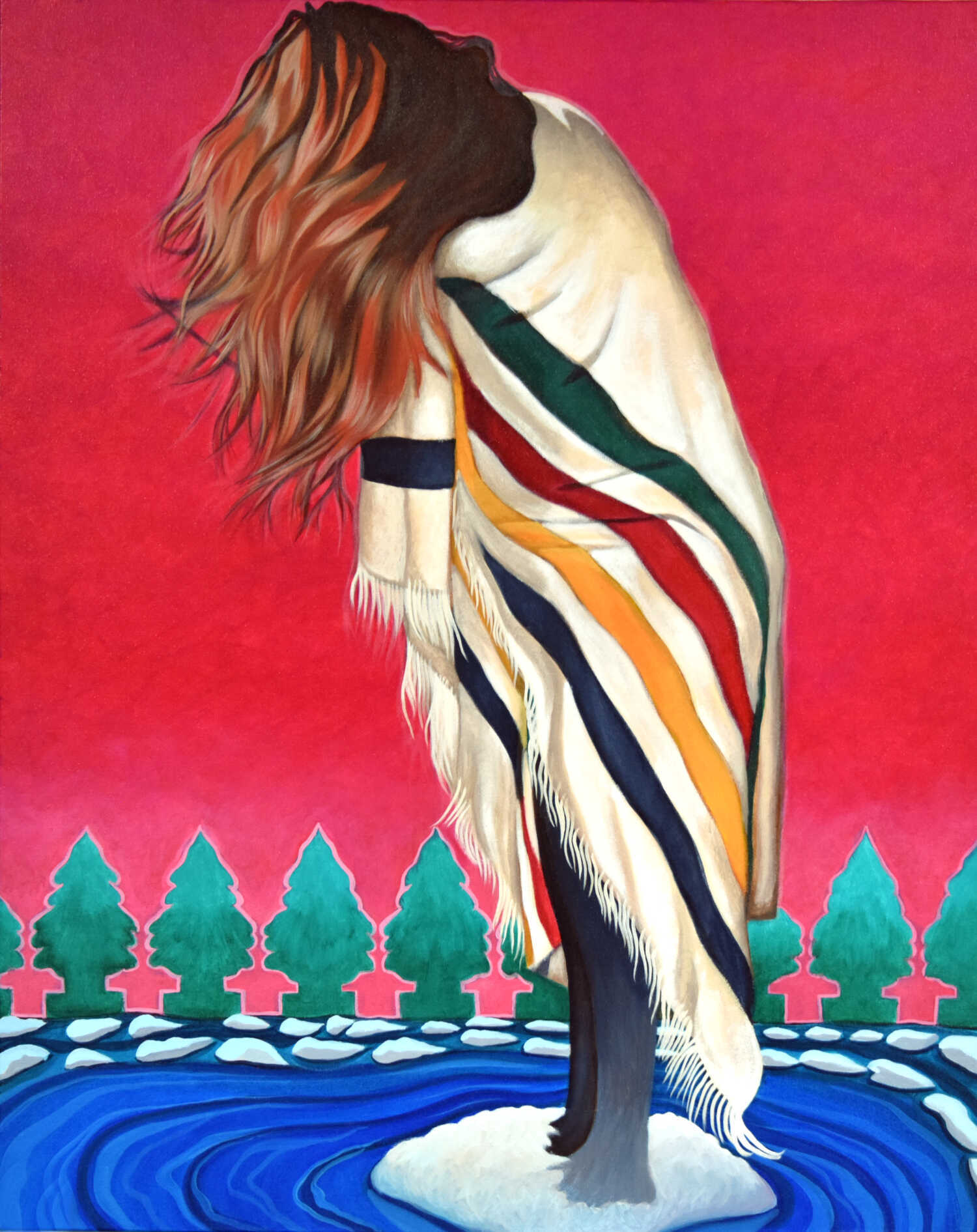
Floating Away, 30×24, acrylic on canvas, 2018 – Brandy Saturley
Paintings by Brandy Saturley Featuring the Hudson’s Bay Point Blanket
As a painter deeply inspired by Canadian iconography, the Hudson’s Bay point blanket has found its way into my work as a recurring motif. Its bold stripes serve not only as a design element but also as a storyteller, evoking both personal nostalgia and broader cultural narratives.
In one painting, the stripes cascade across the canvas, framing a contemporary still life. In another, they become a backdrop for symbols of resilience and identity, like a canoe or a pair of hiking boots. Each painting transforms the blanket into a conversation—about history, about place, and about what it means to be Canadian today.
These works are not just about a blanket; they’re about the layers of meaning it carries. From childhood memories of warmth and security to the cultural stories it represents, the Hudson’s Bay point blanket is a lens through which I explore the Canadian experience.
Here are a several more of my paintings that feature the Hudson’s Bay point blanket—each one a reflection of its timeless appeal and its place in our collective consciousness.
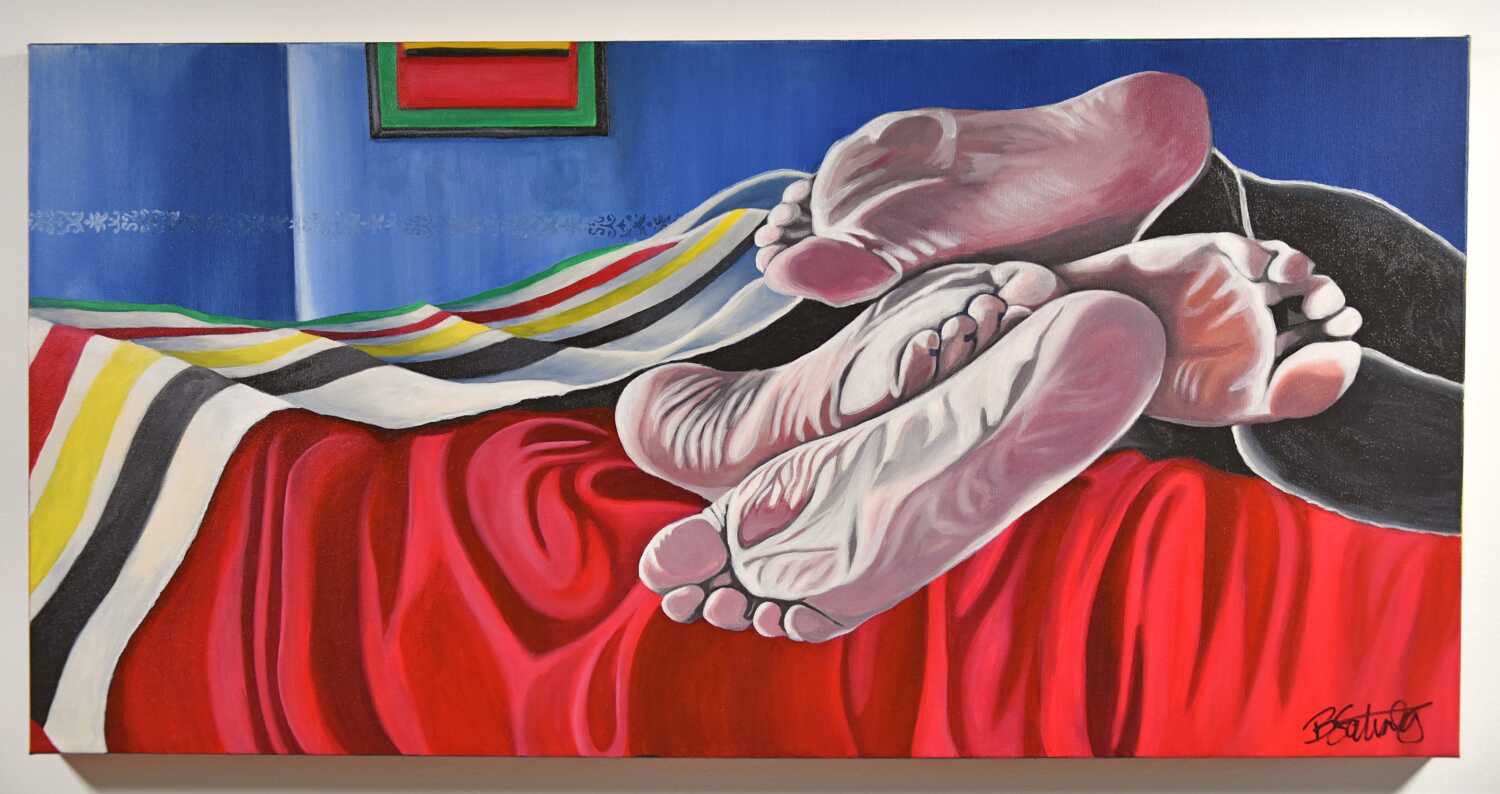
HBC Toes 24×30 acrylic on canvas, 2012 – Brandy Saturley
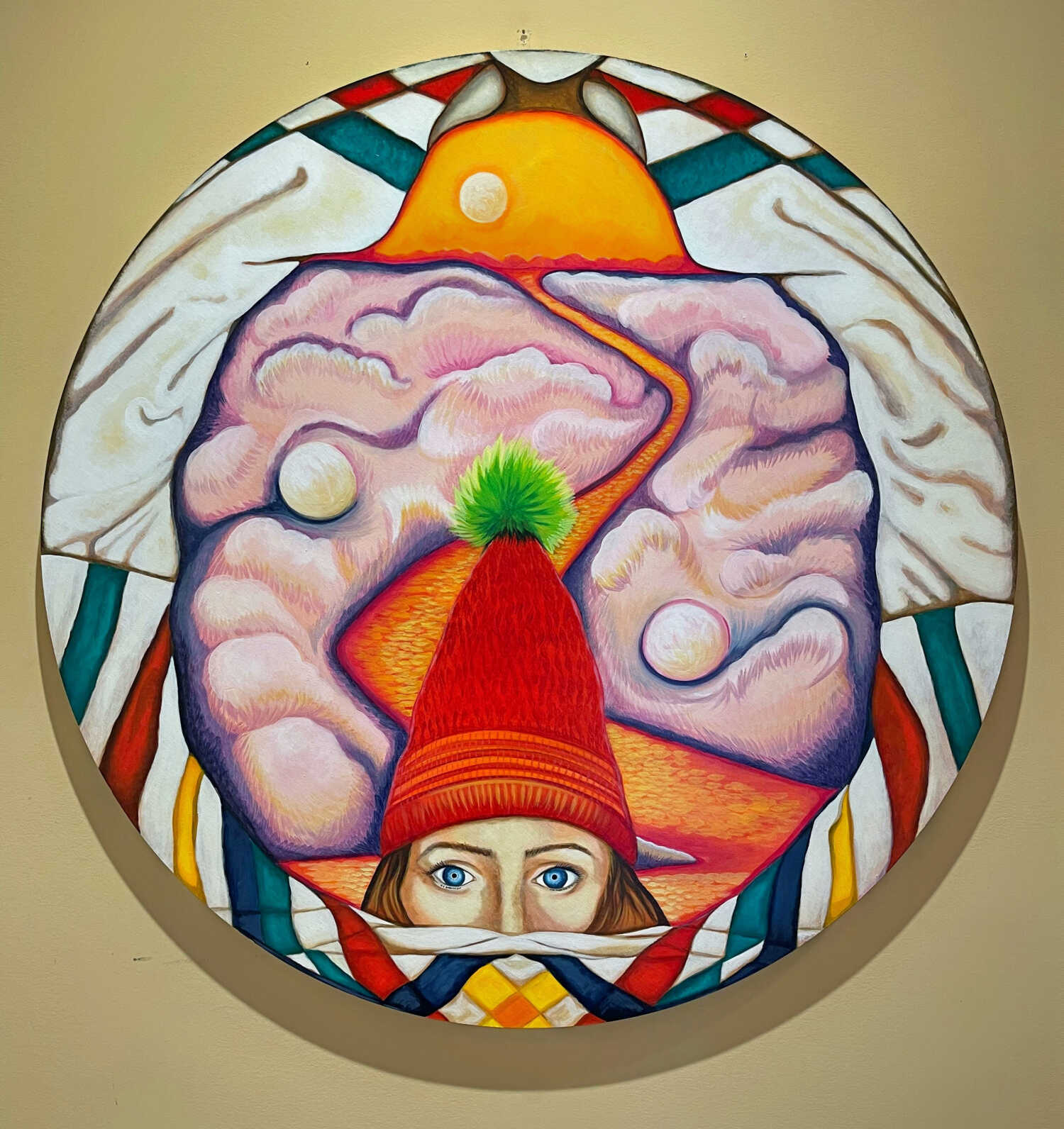
Wreath of Irony, 36×36 acrylic on wood panel, 2020 – Brandy Saturley

